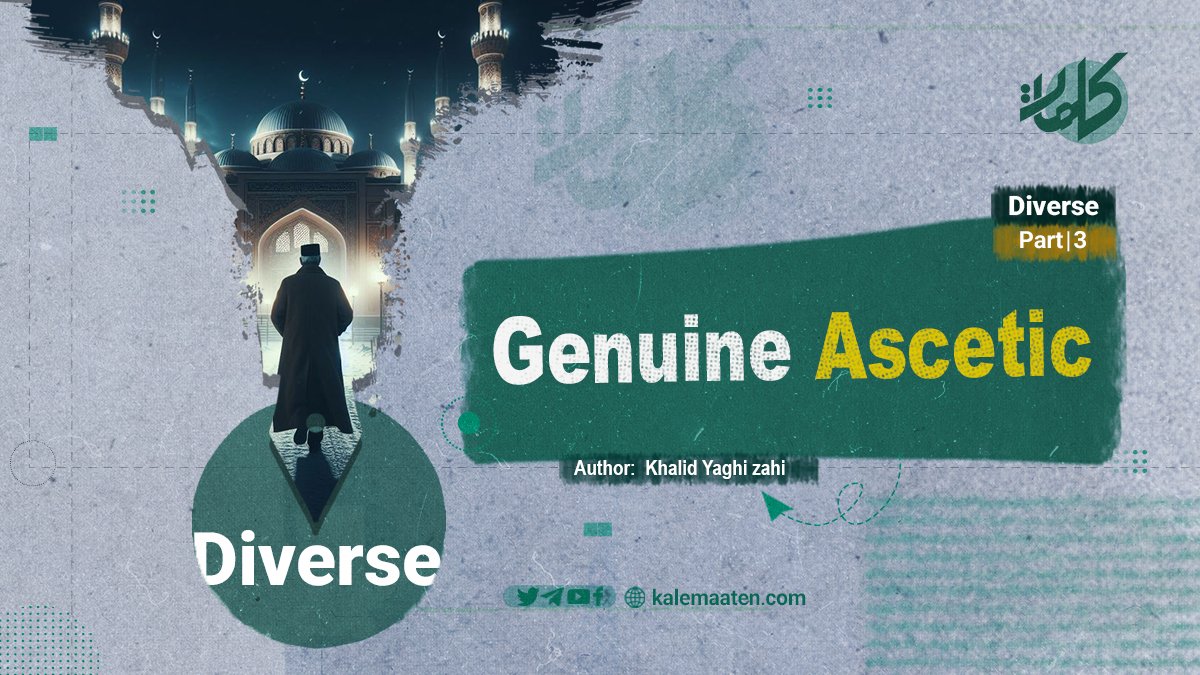
Author: Khalid Yaghi Zahi
Genuine Ascetic (Part Three)
Jihad and Heroism:
Did you see his position among the hadith scholars? If he had only this one characteristic, it would have been enough, but he had more than that. Hadith scholars are men of books, notebooks, gatherings, and hearing hadith, yet despite this, he was also a man of battle, warfare, and a knight of the battlefield.
Let us inquire about his state in the field of heroes and at the borders; “Thaghoor” refers to the border cities where the enemy can infiltrate. The government had established permanent bases there with soldiers to protect these border cities and prevent enemy entry. However, the forces that truly supported these soldiers and drove the enemy away were spontaneous fighters who had traded their souls with God and sacrificed their lives to gain the reward of the Mujahideen.
Every border city was an open gate to Paradise, a perpetual school for heroism, and a field for the brave. Ibn Mubarak would go on pilgrimage one year and spend the next at the frontier, defending the borders and engaging in jihad. When the Mujahideen heard of his arrival, they rushed to greet him, eager to learn from him. They held him in high esteem, and he was one of the heroes whose presence strengthened the hearts of warriors.
When the battle became fierce and the war intensified, they sought refuge in him and other Mujahideen like him, who had no fear of death and no terror from the enemy because they feared only Allah. In the hearts of none does the fear of Allah and the fear of death in His cause coexist. One of the border guards shares the following story:
Abdullah Marozi narrates that he, along with a group, had traveled to the lands of Rome not for battle, but to inquire about the condition of the Mujahideen. Suddenly, a large Roman force surrounded the group, and they were forced to defend themselves. Two armies lined up, and a Roman knight entered the field, rode between the two lines, and, as was customary at the time, called out for a duel. One of the Muslim knights went to face him, and it wasn’t long before the Roman killed him. Another was called out, and he too was slain, followed by a third. The Muslims began to avoid him, while he boldly sought out new challenges.
Suddenly, a masked man from our side, whose face was hidden except for his eyes, entered the field. None of us recognized him. We feared he would be sent by the Romans in place of the three fallen knights, but soon we saw him fighting the Roman, and neither seemed to have the upper hand. Both armies focused their gaze on them, each cheering on their fighter. The two knights displayed such a series of maneuvers and battle techniques that the onlookers had never seen before. Finally, the masked knight struck a blow, killing the Roman and sending him to the ground.
The Muslims shouted “Allahu Akbar,” and the Romans were left without their champion. When the knight returned, we rushed to surround him, but he concealed himself so we would not recognize him. He did not introduce himself. I hurried to him, removed his mask, and found that it was Abdullah ibn Mubarak. Did you see his position among the Mujahideen? If he had only this one characteristic, it would have been enough, but he had more than that.
Mujahideen fighters are like scholars and hadith narrators; among them, there are poor, destitute, and modest individuals, but this hadith scholar and Mujahid was very wealthy. He did not inherit this wealth from his father, as his father was not wealthy. Nor did he acquire it through gifts from the Sultan, for he had no relation with the Sultan. Instead, he earned it through his own efforts; he was one of the great merchants of his time, and his caravans’ carried goods from Khorasan to Iraq and Shaam.
Continues…


